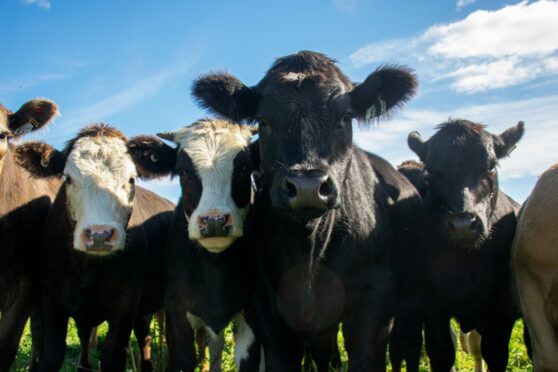The amount of greenhouse gas emissions produced by Scottish livestock enterprises has reduced in the past six years, claims Quality Meat Scotland (QMS).
The red meat levy body’s chief economist, Stuart Ashworth, said estimates on the amount of greenhouse gases emitted from Scottish beef, sheep and pig enterprises show a reduction of between 3 and 10% since 2015.
Speaking during a press briefing to launch QMS‘s annual Scotland’s Cattle and Sheep Enterprise Profitability report, Mr Ashworth said the average reduction in greenhouse gas emission intensities was 3-4%, however better performing businesses achieved reductions of between seven and 10%.
He said results from the report show a direct correlation between technical performance, sound economic management and lower emissions intensity for the best producers.
“It’s fair to say that the gap between the top third [of producers] and the average has been widening slightly over the last decade,” added Mr Ashworth.
He said the core contributors to better performance remained things such as lower mortality rates, high conception rates, and minimal losses between birth and weaning – all of which resulted in having more product to sell in the marketplace.
“Equally though, improvements to resource use efficiency can contribute to improved profitability,” added Mr Ashworth.
“The report points towards benefits that come from things like maximising the potential and quality of grass and animals and seeking out innovations and fresh ideas.
“The gains from these individual details on their own may seem small but, when added together, lead to useful cumulative marginal gains in input efficiencies and cost savings.”
Mr Ashworth said although the report suggested a reduction in emissions on farms, they did not take into account carbon sequestration or each farm as a whole – solely the livestock enterprise.
“The challenge that we have is that the scientists have not yet fully grappled with carbon sequestration and incorporated it into their models,” added Mr Ashworth.
QMS chief executive, Alan Clarke, said the organisation was working with meat industry partners across the world to get carbon sequestration calculations incorporated into greenhouse gas measuring tools.
